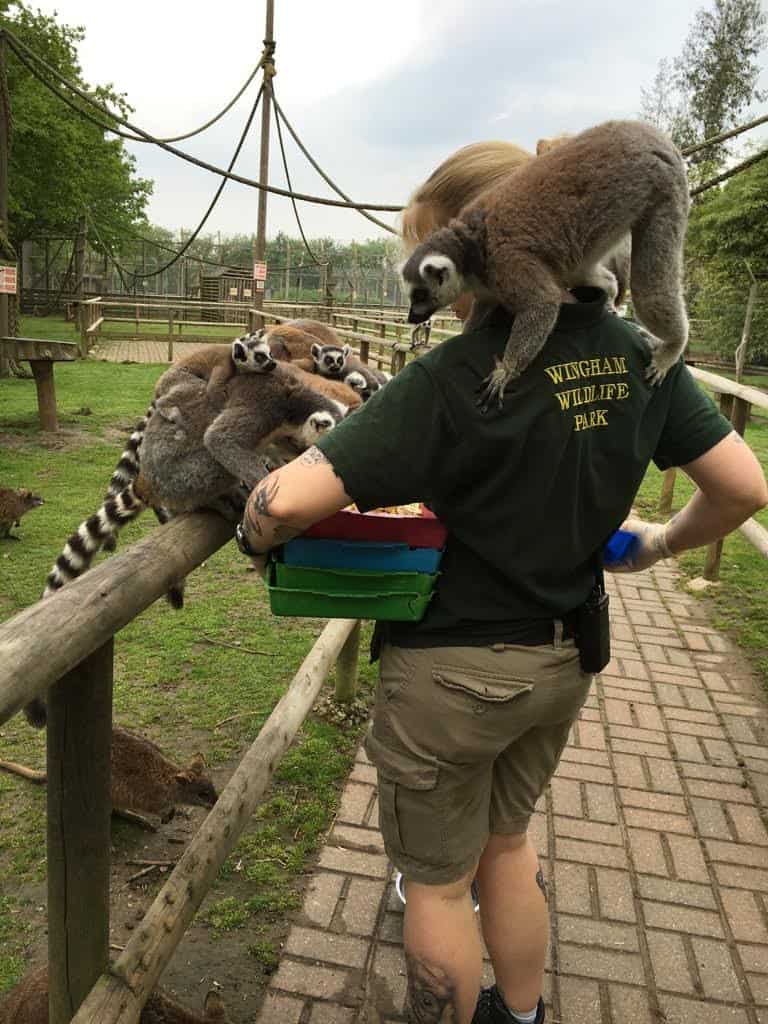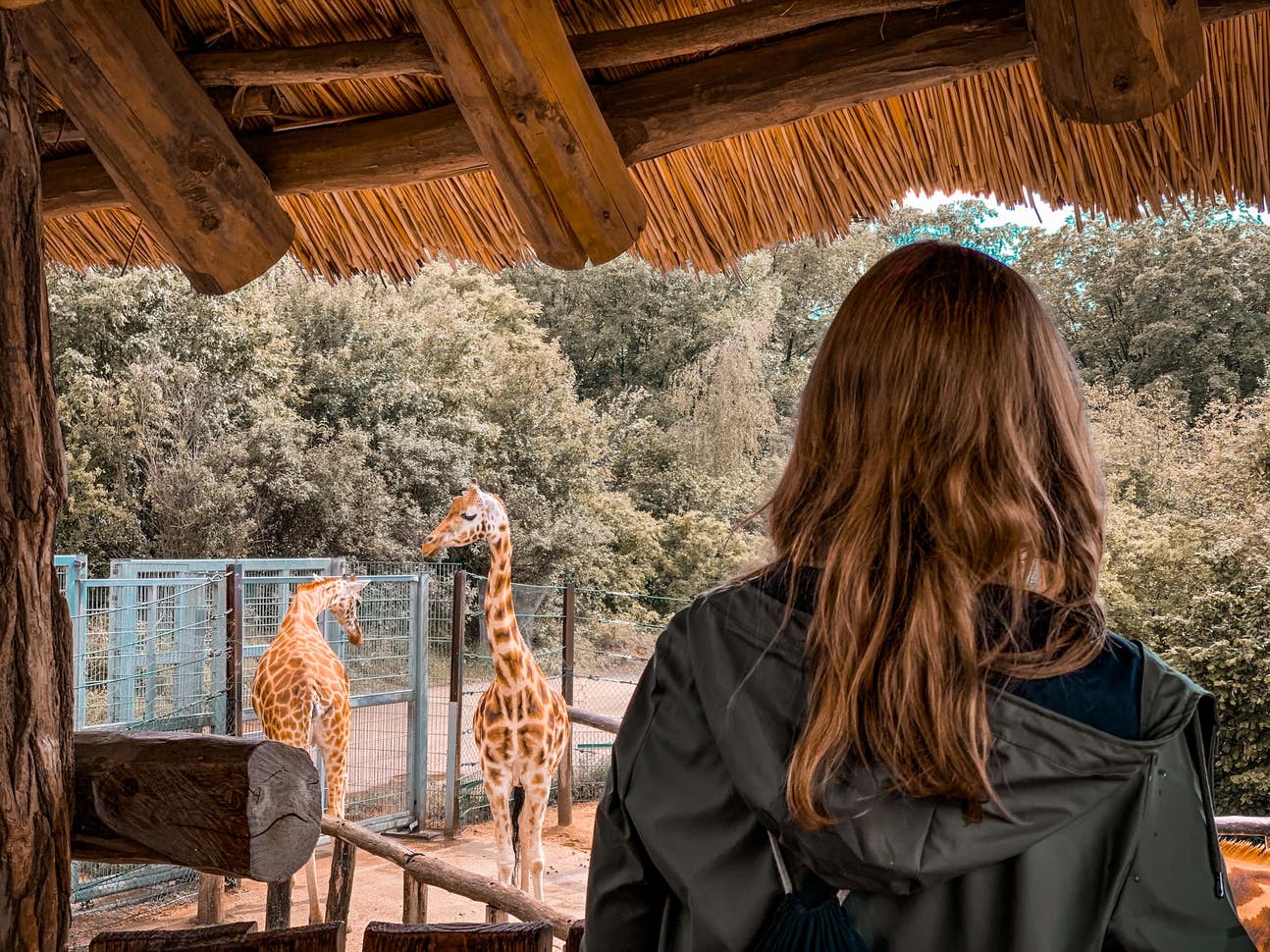How To Become A Zoo Keeper?
페이지 정보
작성자 Brigitte 댓글 0건 조회 14회 작성일 25-02-06 09:33본문
"The success of a country and its moral development can be judged by the way its animals are dealt with." - Mahatma Gandhi

Do you like animals and zookeeper dream of operating in a zoo? Zoo keepers are key in safeguarding wildlife and taking care of animals. At places like the Zoological Society of London (ZSL), over 20,000 animals get the care they need from professionals.
.jpg)
To become a zoo keeper, you need effort, education, and a love for animals. This task is interesting, letting you deal with numerous species and assist with important preservation work. If you're into wildlife or animal welfare, zookeeping might be ideal for you.
Beginning your zoo keeper career indicates discovering what's needed. This guide will cover education, experience, and more. It's all you require to know to start a satisfying zookeeping profession.
Comprehending the Role of a Zookeeper
Exploring what a zookeeper does exposes a function full of difficulties and zookeeper rewards. They focus on animal welfare and conservation. Zookeepers work hard to keep animals healthy and happy in their care.
Daily Responsibilities and Tasks
A zookeeper's day is filled with important jobs:
- Preparing meals that fulfill each animal's dietary requirements
- Cleaning enclosures to keep them tidy and safe
- Monitoring animal health and behaviour
- Offering medications and treatments as required
- Producing activities to keep animals psychologically sharp
Working Environment and Conditions
Zookeepers work outside in all kinds of weather condition. They handle both indoor and outside areas. The task requires being physically fit and able to deal with the demands of caring for animals.
"Being a zookeeper is more than a task - it's a passionate commitment to animal care and conservation."
Types of Animals and Specialisations
Zookeepers can specialise in lots of animal groups:
- Primates
- Big cats
- Marine mammals
- Reptiles
- Birds
Your role may involve working with 2-5 different animal types. This requires a great deal of knowledge and the ability to adjust.
Vital Skills and Personal Qualities for Zoo Keeping
To be a leading zookeeper, you need more than just a love for animals. Your task will be difficult and need you to manage animals and people well. You'll likewise need to comprehend animal behaviour.
What zoos try to find in individuals includes:
- Exceptional patience and psychological strength
- Strong physical fitness and stamina
- Keen observation abilities
- Capability to stay calm under pressure
- High level of compassion towards animals
Getting hands-on experience is key to mastering this role. You'll need to show:
- Advanced understanding of animal care techniques
- Efficiency in animal handling and security procedures
- Efficient interaction with both animals and human visitors
"An excellent zookeeper connects science, empathy, and preservation in every interaction with animals."
You must understand about animal nutrition, behaviour, and fundamental vet care. Many zookeepers learn through training, offering, and ongoing knowing.
Zookeeper work is not just a task. It's a huge dedication to teaching about wildlife and helping conservation. Your enthusiasm and hard work will make you stand out in this satisfying career.
How to Become a Zoo Keeper
Beginning a profession as a zookeeper requires careful planning and education. You should initially comprehend the academic requirements and training paths. These will turn your love for animals into a task.
Educational Requirements
To be a fantastic zookeeper, you require a strong scholastic base. Many tasks try to find specific credentials:
- At least 5 GCSEs at grade 4 or above, including English, maths, and science
- A levels or higher education credentials
- A college degree in biology or animal science
- Level 3 Diploma in Animal Management
Needed Certifications
Getting unique certifications can really help you in your zookeeper profession. Essential ones consist of:
- Diploma in Management of Zoo and Aquarium Animals (DMZAA)
- Zookeeping Level 3 Diploma (RQF)
- Animal dealing with certificates
- Emergency treatment qualifications
Training Programs and Apprenticeships
Getting hands-on experience is type in zookeeper training. Lots of locations provide great opportunities:
- Unpaid apprenticeships at wildlife parks
- Internship programs at widely known zoos
- Practical training at places like Colchester Zoo and Dartmoor Zoo
- Offering to get real-world abilities
Pro pointer: Create a detailed portfolio to show your animal care skills. It will assist you in task applications.
Structure Relevant Experience in Animal Care
Acquiring hands-on experience is crucial for those wishing to be zookeepers. The job is really competitive. So, it's essential to begin developing a strong base in animal care.
Your journey begins with finding methods to work directly with animals. This is a strategic action.
"Experience is the very best instructor in animal care" - Wildlife Conservation Experts
Here are effective ways to get experience working with animals:
- Volunteer at local animal shelters to establish standard animal handling skills
- Look for internships at wildlife rehab centres
- Explore part-time positions at veterinary clinics
- Contact your local zoo for possible volunteer chances
Offering is an excellent way to find out about animal behaviour and care. Many zoos and animal shelters are looking for individuals who want to discover. These locations use excellent opportunities to get hands-on experience and zookeeper reveal your devotion to animal welfare.
Here are some suggestions to make the most of your experience:
- Keep a record of your skills and interactions
- Connect with experts in animal care
- Request for recommendations and recommendation letters
- Stay persistent and show your true enthusiasm
Keep in mind, useful experience makes you stand apart in the zookeeping world. Whenever you work with animals, you discover more. This increases your possibilities of getting a job in animal care.
Career Pathways and Professional Development
Beginning a profession as a zookeeper is exciting. It offers lots of possibilities to grow and specialise. Your journey begins with comprehending the different paths in this field.
Entry-Level Positions
Entry-level tasks in zookeeping are a terrific start. They offer you hands-on experience. Zoos look for prospects with:
- Level 2 Diploma in Animal Care (minimum credentials)
- GCSEs in English and a scientific subject
- Volunteer experience at animal shelters or farms
Career Progression Opportunities
As you gain experience, your profession can grow. You can go up to:
- Junior Keeper
- Senior Keeper
- Group Leader
- Expert Roles
"Continuous learning and useful experience are essential to advancing in your zookeeping profession."
Specialised Roles
You can also choose unique locations like:
- Conservation reproducing programmes
- Animal training
- Wildlife research study
- Educational outreach
About 25% of zookeepers get advanced degrees in zoology or animal preservation. Getting Level 4 certifications can increase your for senior roles and research study.
Working Hours and Physical Demands
Ending up being a zookeeper means you'll work more than simply routine hours. You'll deal with difficult physical difficulties and require to be flexible, consisting of weekends and holidays. Zoos are open every day, so you'll typically work when others unwind.
"Zoo keeping is not a common 9-to-5 task-- it's a lifestyle of devoted animal care and commitment."
This job is physically demanding. You'll work outside in any weather, raising heavy items over 50 pounds. Your tasks may consist of:
- Early early morning feeding schedules
- Cleaning up animal enclosures
- Preparing specialised diets
- Performing health checks
- Maintaining complicated environments
Shifts can begin as early as 5 AM and go late into the night. You'll be on your feet most of the time, moving in between animal zones. Weekends and holidays belong to the task, requiring great deals of endurance and dedication.
Regardless of the difficulties, this task has great rewards. You'll grow strong, both physically and emotionally. You'll likewise make remarkable connections with extraordinary animals.
Health And Wellness Considerations
Being a zookeeper includes its own set of difficulties. It's important to know how to keep both animals and staff safe. This indicates following rigorous health and safety guidelines.
Zookeepers deal with a distinct environment where safety is crucial. Research studies reveal that health and safety are now as important as the zoo's primary work.
Danger Management Strategies
There are numerous ways to manage risks in zoos:
- Daily checks of animal enclosures for threats
- Counting animals at the start and end of shifts
- Watching how visitors act near animals
- Being ready for emergency situations
Animal Handling Safety Protocols
Knowing which animals are most unsafe is important. Huge animals like rhinos can be really dangerous. There have been cases where zookeepers got seriously injured.
Safety isn't practically using gear - it's about understanding animal behaviour and staying alert.
Individual Protective Equipment
Zookeepers require to use the ideal gear, consisting of:
- Special gloves for managing animals
- Strong shoes for grip and security
- Clothes that secures against germs
Getting vaccinated against illness like liver disease B and zookeeper rabies is also essential. It assists keep zookeepers healthy in their tough job.
Income Expectations and Job Market
Thinking about a profession in zoo keeping? It's essential to understand about salaries and the task market. The field is growing, with more opportunities in the UK.
Let's look at what zoo keepers can earn at various phases:
- Entry-level zookeepers begin at about ₤ 14,000 a year
- Qualified ones make between ₤ 16,000 and ₤ 22,000
- Senior zookeepers can earn up to ₤ 30,000 or more
The task outlook for zoo keepers is excellent. The sector is anticipated to grow by 5% in the UK by 2029. This indicates around 3,910 brand-new tasks will be available.
"The Association of Zoos and Aquariums supports professional growth for zoo keepers," a report states.
Wages differ based on a number of things:
- Experience level
- Expertise
- Where you work
- The zoo's size and type
While the pay might not be high, the joy of dealing with animals is invaluable. The typical income is around ₤ 17,000. But, overall revenues can be between ₤ 13,000 and ₤ 27,000 a year.
Conclusion
Starting a career in animal care is an interesting journey. It needs devotion, passion, and a love for knowing. With over 350 zoos and wildlife locations in the UK, there are many task chances. You'll get to work with fantastic animals and help secure wildlife.
To be a zoo keeper, you require more than just love for animals. You must have a good understanding of biology, have the ability to interact well, and constantly wish to find out more. You'll gain hands-on experience, learn about animal welfare, and develop a deep respect for nature. About 3,000 individuals in the UK have actually found satisfying careers in this field.

Your success in zoo keeping originates from mixing science with a love for animals. Whether you're interested in mammals, birds, or marine life, this job lets you aid with conservation. Every day will bring brand-new obstacles and learning opportunities that will enhance your skills and knowledge.
If you enjoy animals and want to assist protect wildlife, zoo keeping might be for you. Take on the challenge, remain curious, and turn your enthusiasm for animals into a satisfying profession.
- 이전글서울 정품비아그라 반값 이벤트 25.02.06
- 다음글Grasp (Your) Buy Traffic Outbrain in 5 Minutes A Day 25.02.06
댓글목록
등록된 댓글이 없습니다.